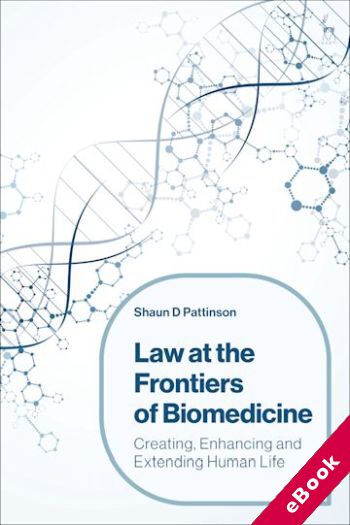
The device(s) you use to access the eBook content must be authorized with an Adobe ID before you download the product otherwise it will fail to register correctly.
For further information see https://www.wildy.com/ebook-formats
Once the order is confirmed an automated e-mail will be sent to you to allow you to download the eBook.
All eBooks are supplied firm sale and cannot be returned. If you believe there is a fault with your eBook then contact us on ebooks@wildy.com and we will help in resolving the issue. This does not affect your statutory rights.
How should judges and legislators address challenges arising at the frontiers of biomedicine? What if it became possible to edit the DNA of embryos for enhanced traits, gestate a fetus in an artificial womb, self-modify brain implants to provide new skills or bring a frozen human back to life?
This book presents an innovative legal theory and applies it to future developments in biomedicine. This legal theory reconceptualises the role of legal officials in terms of moral principle and contextual constraints: 'contextual legal idealism'. It is applied by asking how a political leader or appeal court judge could address technological developments for which the current law of England and Wales would be ill-equipped to respond.
The book's central thesis is that the regulation of human conduct requires moral reasoning directed to the context in which it operates. The link between abstract theory and practical application is articulated using future developments within four areas of biomedicine. Developments in heritable genome editing and cybernetic biohacking are addressed using Explanatory Notes to hypothetical UK Parliamentary Bills. Developments in ectogestation and cryonic reanimation are addressed using hypothetical appeal court judgments.
The book will be of great interest to scholars and students of medical/health law, criminal law, bioethics, biolaw, legal theory and moral philosophy.